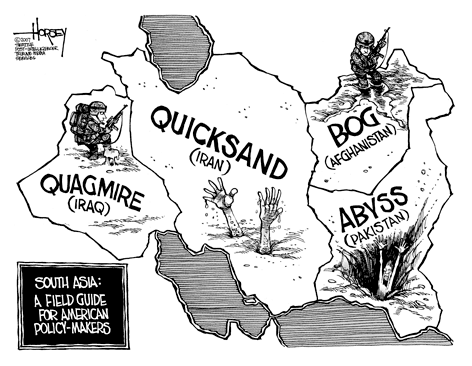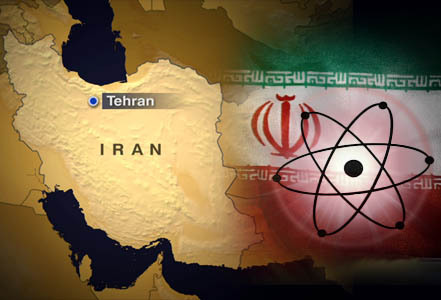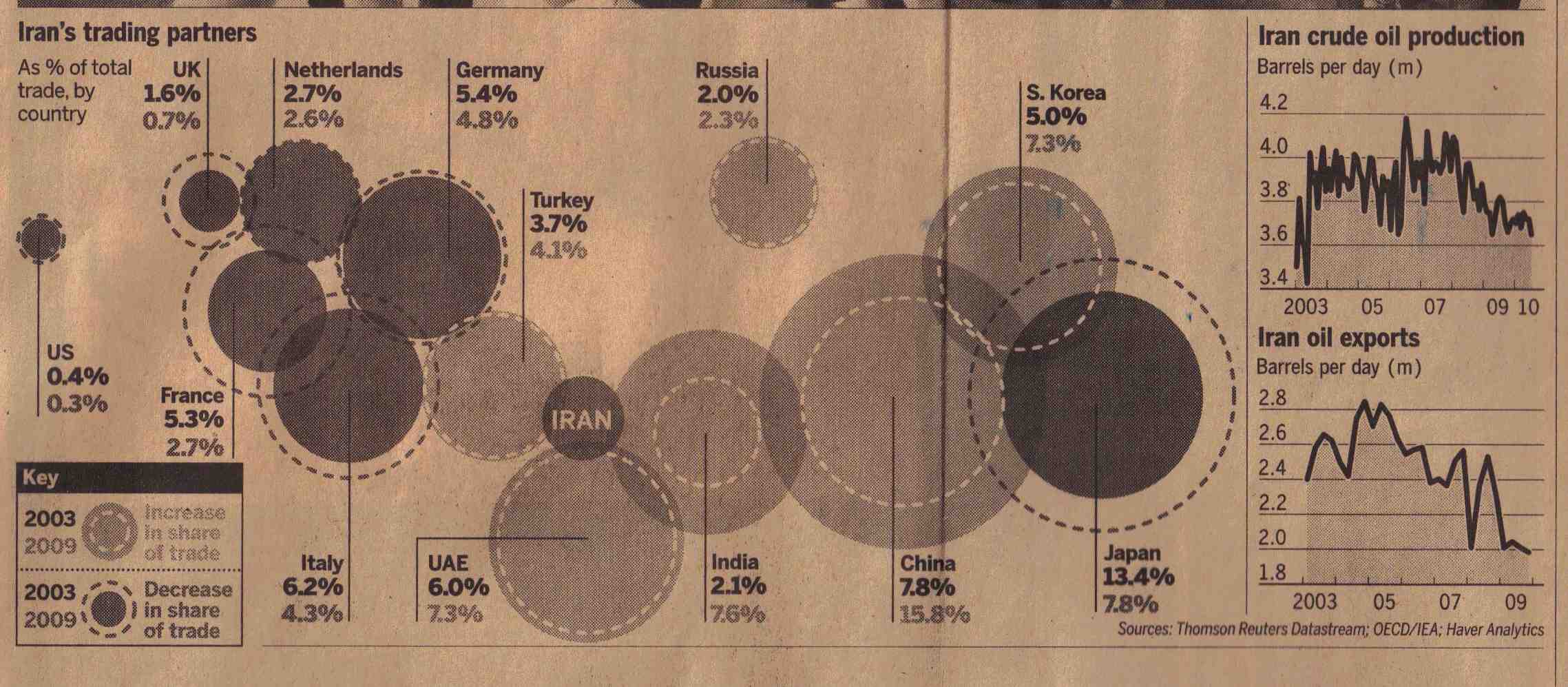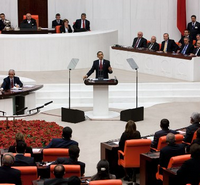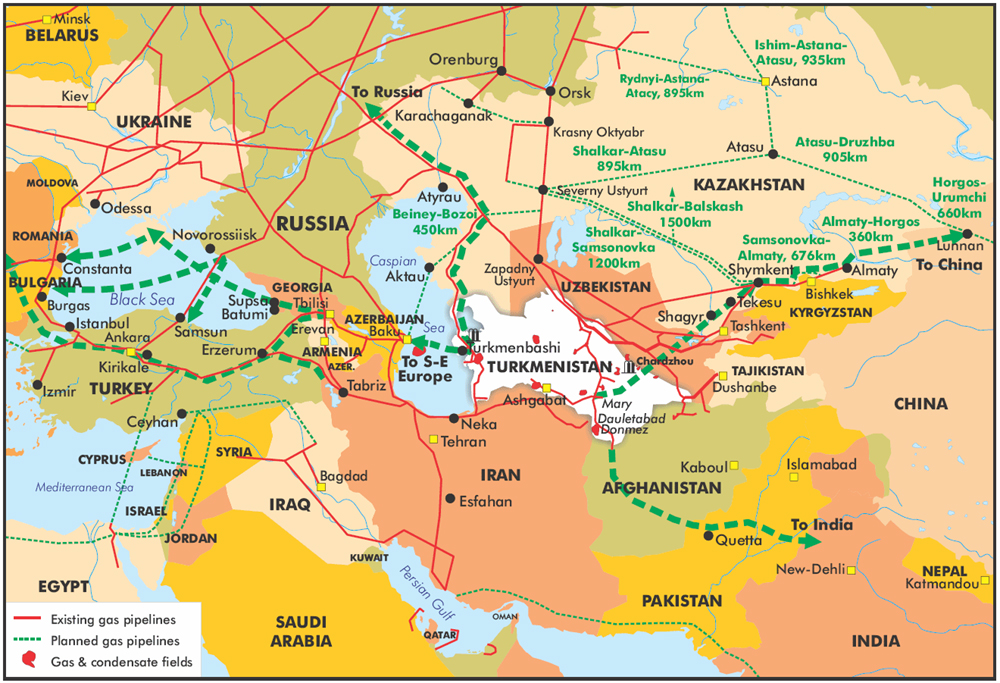
Very sensible stuff from Hilary Mann Leverett at ForeignPolicy.com by way of Our Man in Kabul.
The first question covers the gist of her logic.
1. In late May, then-top commander General Stanley McChrystal said there is "clear evidence of Iranian activity" in training and providing weaponry to the Taliban in Afghanistan. What are Iran's core interests in Afghanistan, and how have they evolved in the last nine years? How do those complement or work against what the U.S. and NATO are trying to achieve there?
Iran has a strategic stake in Afghanistan that has not changed in the last nine years. Tehran's overriding interest is to prevent Afghanistan (with its long and lawless border with Iran) from being used as a platform from which to attack or undermine the Islamic Republic or to weaken Iran's standing as a regional power.
To prevent Afghanistan from being used as an anti-Iranian platform, the Islamic Republic has worked, over many years, to form relationships with Afghan players who could keep Iran's Afghan enemies (principally the Taliban but also other anti-Shiite and anti-Persian groups) and their external supporters (principally Saudi Arabia and Pakistan, two of Iran's most important regional antagonists) in check. To this end, Iran has worked to strengthen and unite Afghanistan's Shiite Hazara and other Dari/Persian-speaking communities (which together comprise about 45 percent of the population) as a counterweight to anti-Iranian, pro-Saudi, and pro-Pakistani elements among Afghan Pashtuns (roughly 42 percent of the population). The Hazara and other Dari/Persian-speaking communities were, of course, the core of the Northern Alliance that fought the Taliban during the 1990s, and were supported by India and Russia as well as Iran.[[BREAK]]
In contrast to Iraq, where Shia are a clear majority of the population and Shiite groups linked to Tehran are the most important political forces in the country, Iran knows from bitter experience that the Hazara and the other Dari/Persian-speaking communities provide, at best, inadequate protection for Iranian interests in Afghanistan, because they cannot govern the country in a way that keeps it relatively stable and minimizes Pakistani and Saudi influence. So, alongside its alliances with the Hazara and the other Dari/Persian-speaking groups, Iran has also cultivated ties to some Pashtun elements in Afghanistan and supported the country's Pashtun President, Hamid Karzai.
As part of its cultivation of ties to Pashtun elements, Iran has almost certainly reached out to some Taliban factions. But I would wager a substantial sum that America's "ally" Pakistan is providing vastly more support to the Afghan Taliban than anything the Islamic Republic might be doing. And Tehran remains strongly opposed to the Taliban's resurgence as a major force in Afghan politics, for two reasons. First, the Taliban have traditionally persecuted Iran's Afghan allies -- especially the Shia Hazara -- and have even murdered Iranian diplomats. Second, Tehran sees the Taliban as a pawn for the expansion of Pakistani and Saudi influence in Afghanistan.
As Tehran pursues this strategy of multiple alliances within Afghanistan, it must also assess the evolving role of the United States there and the implications of the U.S. posture toward Iran for Iran's Afghanistan policy. If the United States and NATO could convince Iran that they want an independent and stable Afghanistan that would be friendly to Iran, then U.S./NATO and Iranian strategies and tactics could complement each other very constructively. (This was very much the case in the months following the September 11, 2001 terrorist attacks in the United States, when I was one of a small number of U.S. officials engaged in ongoing discussions with Iranian counterparts about how to deal with Afghanistan and al-Qaeda, and U.S. and Iranian policies regarding these issues were rather closely coordinated.)
But, if Tehran perceives Washington as hostile to its interests -- which, unfortunately, is currently the case, given the Obama administration's drive to impose sanctions and continued use of covert operations to undermine the Islamic Republic -- then Iranian policymakers will regard the United States, along with America's Pakistani and Saudi allies, as part of the complex of anti-Iranian external players that Iran needs to balance against in Afghanistan. In this context, Iran has a strong interest in preventing U.S. troops in Afghanistan from being used to attack Iran directly, used as covert operatives to undermine the Iranian government, or used to strengthen Iran's regional rivals.
So often I'm sent stuff that says Iran is meddling in Afghanistan and therefore we shouldn't consider cooperating with them. But as I like to note, Af-Pak is Iran's front yard, so meddling is a given. When you understand how the Iranians are meddling, you see the potential for collaboration. But as Mann Leverett points out, when you chose Pakistan, you un-choose others--and not just India.
 Tuesday, September 21, 2010 at 8:34AM
Tuesday, September 21, 2010 at 8:34AM Ah, U.N. Week — that time of year when Fox News sounds the alarm bells and The National Review starts making musical-theater references to impending speeches from Dictators with an Important Audience. And when the rest of us realize that Thursday's session with Iranian president Mahmoud Ahmadinejad will be quite the opposite: another round of comic relief sure to sabotage his own attempts to be taken seriously, followed by another round of (mostly) effective sanctions. The Obama administration already rolled one eye on Monday by refusing a detainee swap, so let's see just how far one man's stubbornness can be leveraged, shall we?









